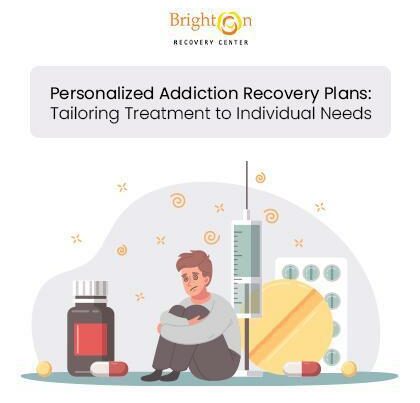Overcoming Fear of Trying New Approaches to Your Recovery

Each person’s journey through recovery will look different. There are several ways that someone can begin their recovery path, build on their strengths, or set their own goals of what sobriety means personally. However, finding each individual’s path to success may require trials of various approaches. Overcoming the reservations that someone may have about beginning a new therapeutic approach or even starting their recovery process is essential in discovering how they will set their paths to success or find what practices work best. While trying new approaches to recovery can come with many different stresses, there are a few checks that each person can use to help them continue exploring their recovery options.
Don’t Be Afraid to Ask Questions
Learning about new practices before participating helps to take away some of the anxiety surrounding trying new approaches. By researching particular practices on one’s own, talking to professionals about specific programs, or even talking to those who participate in it or have tried such approaches themselves, someone can form a better picture of what various therapies may look like in practice. Either discussing art therapy with someone who uses it regularly, or talking to someone about a particular movement therapy or yoga class, can take away some of the uncertainties someone may have about what they may be about to try for the first time.
Maintain an Open Mind
Different approaches work for different people. When exploring what therapeutic approaches may be impactful for any individual, it is essential to know that certain practices may be recommended because they have proven useful for others. Even if someone has reservations about a particular method, it is crucial to keep an open mind about the therapy’s effects rather than the actual practice itself. While someone may not be very good at a particular sport, or they may find themselves unable to sit still through meditation, that doesn’t mean that the practice won’t work at all. Instead, it is essential to embrace the intended effects of such practices rather than one’s skill level when engaging with a method for the first time. Suppose a particular practice isn’t a good fit. In that case, that doesn’t mean the practice as a whole is ineffective for others, and keeping an open mind about the highly individualized world of recovery can help broaden horizons as someone finds their best path.
It May Seem Weird at First
Trying new therapies may feel weird at first, and that’s normal. It can take time for each person to get used to any new practice, and someone may feel reservations about their participation as a result. However, that doesn’t mean that the practice is inherently ineffective after just trying one introductory session. It is common for some approaches to feel strange initially, but this time is an investment towards one’s recovery and future. Giving new approaches a few genuine tries can help someone open up to the effects and methodology behind the practice, rather than worrying about their participation on the surface level.
You Don’t Have to Start It Alone
Beginning a new approach doesn’t need to be a solitary activity. One of the significant barriers that someone may face is being uncertain about joining a new community where they may not know any people or social norms. However, having friends with which to try new approaches can help ease the process. Having trusted companions together, such as family members, friends, or even others that someone had met during recovery already, can help ease the anxieties that may come with trying new therapies. Not only can this be a way to ensure that each person gives each therapy a genuine chance, but it also can provide a sense of safety and community that is needed through any stage of the recovery process. If, after a few chances, someone decides that a particular therapy isn’t the right approach for them, they still have a trusted group to talk with about why such an approach may not have been as effective to fine-tune the next approach. Having others as a resource to discuss each individual’s recovery can be invaluable as each person determines their own best practices and path to sobriety.
Trying new approaches is an essential part of the recovery process. While not every approach will fit every person, it is crucial to keep an open mind about one’s approaches to recovery and continue to adjust their path to find a significant set of practices. Continually trying new approaches will continue to broaden one’s skillset in recovery and lead someone to a new, impactful way of maintaining a sober future.
Recovery itself can come with anxiety, but there are always new options available to try. If you or a loved one are struggling with an addiction to drugs or alcohol or are suffering from the effects of your traumas, Brighton Recovery Center can help you today. Our extensive, six-building campus comes complete with several amenities, including meeting halls, a gym, yoga studio, coffee shop, and much more to ensure that each individual can take their approach to recovery. Personalizing your time with us, either in our sober living facilities or during an intensive outpatient program, can help you learn the skills that are most pertinent to you and your goals while continuously establishing a sense of community to provide each person with the safety net they need to confront these new practices in a safe environment. For more information on how we can personalize a program for you, call us today at (844) 479-7035.



